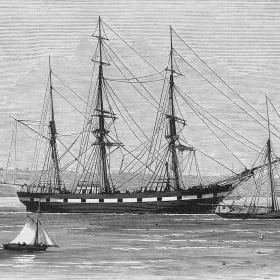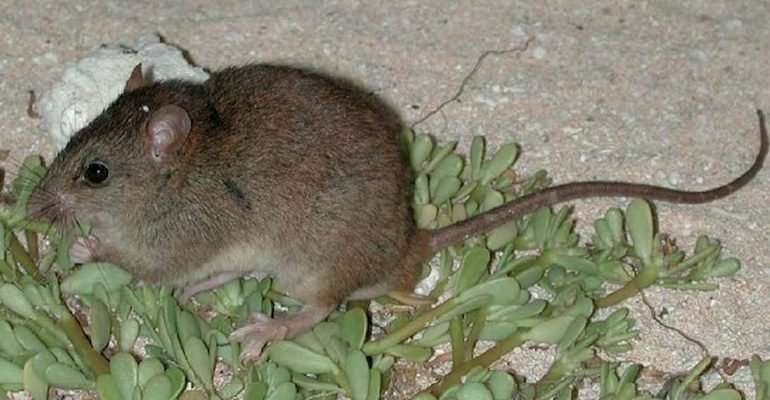Shipwreck research unearths treasure trove of animal knowledge

Research into accounts of Australia's first scientific expedition to foreign lands could assist with modern-day efforts to conserve native mammals and marsupials.
Murdoch University adjunct researcher Graham Fulton has investigated various documents relating to the French tall ship the Chevert, which set off from Sydney in 1875 to collect specimens and artefacts from islands off northern Queensland, the Torres Strait and New Guinea.
He found the expedition collected 15 more native Australian mammal species than was originally thought, and the documents provided a deeper understanding of the origins of many species.
"In order to conserve a species of animal, it is critical to know which species or sub-species it is, and where it originated from," Mr Fulton said.
"Knowing where the animal was found in 1875 can be cross-checked against where it exists now, which gives us an understanding of its previous habitat, distribution and range compared to today."
Approximately 1,000 birds, 800 fish and many reptiles, mammals, insects, marine molluscs and artefacts were gathered by the Chevert's crew, but the some of the work was left incomplete.
"There were numerous records kept of the expedition, but some of the information wasn't recorded or has since gone missing," Mr Fulton said.
Cross-referencing an account of the expedition that was published in 1877, with journal and diary entries by crew members, and newspaper articles written by the ship's captain, and by one of its zoologists, William F Petterd – Mr Fulton has sought to fill in the gaps in the Chevert's history.
In his research, Mr Fulton has found that a species of wallaby, and a microbat, which are now deemed to be 'vulnerable' and 'near threatened' species respectively, had been collected as part of the expedition, from Hall Sound and Cape York Peninsula respectively.

The mosaic-tailed rodent or Bramble Cay Melomys, which in 2016 became the first Australian mammal known to become extinct due to human-induced climate change, was also collected, however this finding was not previously published.
"Although this knowledge may have come too late for conserving the Bramble Cay Melomys, a deeper understanding of the origins of the other species could be important for understanding how they can be saved from the same fate," he said.
The Chevert expedition was financed and led by natural historian Sir William John Macleay.
With a full complement of 31 onboard, Macleay was joined by George Masters; three notable zoologists – William F. Petterd, John W. Brazier, Edward Spalding; as well as two botanical collectors.
In the name of science and knowledge, this team of nature enthusiasts expeditiously gathered and logged their native flora and fauna finds from stops along the Pacific coastline.
Most of the items gathered during the venture were categorised and added to Macleay's Museum collection, located on the grounds of the University of Sydney, where they remain today.
Following the expedition, the Chevert subsequently re-entered the merchant service before being wrecked in a cyclone in Vanuatu in 1880. It was then towed to a beach at nearby Port Sandwich, where its remnants remain to this day.
Professor Fulton's insights on the mammals collected during the Chevert expedition have been documented in the latest edition of The Proceedings of the Linnean Society of New South Wales, Australia's longest-running scientific journal.
His article on the ship's history was also published in the Journal of Pacific History this year.
More information: Graham R. Fulton et al. The Chevert: A History, The Journal of Pacific History (2018). DOI: 10.1080/00223344.2018.1448216
Provided by Murdoch University


















